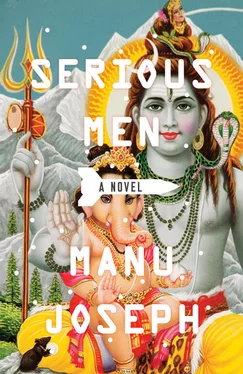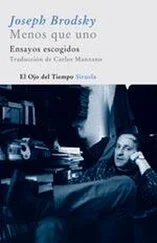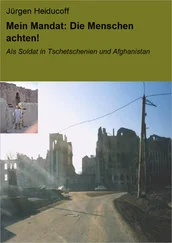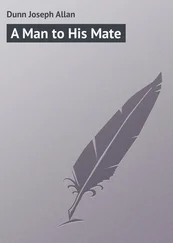He went to the window and stood looking at the calm sea. He felt the presence of Oparna beside him. He did not find it strange that they stood there like that without a word, like an ancient couple who had no need for language. They stared through the window with unflinching eyes, but never before, not even during their first naked gazes in the basement, had they looked so deeply into each other.
When she finally spoke, it was another form of silence, like the sound of the sea, and the songs of the birds. He heard her tell him dreamily how excited she was when the sampler arrived, how she hoped there was something in it that would make him happy.
‘We ran all kinds of tests, Arvind,’ she said. ‘Then, when I began to realize that there was nothing in it, you know what I did? I did not leave the lab for four days. Four days and four nights, at a stretch, I ran test after test because I did not want to see you sad. I don’t know what happened on the fourth night. Something hit me. It was as if I had woken up from a stupid dream. And I was so ashamed. I asked myself why am I such a sucker for men. Here is an old bastard who hurt me so much and I was going mad trying to make him happy, trying like an idiot to find something in a stupid steel box. I was so angry with myself Arvind, and at you, and at everything.’
So, in the stealth of dawn she had contaminated the sampler with microbial cultures that were available in the lab. It consoled her. The idea of taking him to absolute ruin, she said, made her feel powerful and, finally, smart.
They resumed the patient silence of an unnatural belonging. Then he heard her light footsteps leave the room. For hours after that he stood by the window. Pigeons that came in the excitement of landing on the ledge were stunned by his ghostly stare. Down on the pathways around the main lawn, small groups of scientists were gathering. In them there was an unmistakable excitement that masqueraded as shock, just like the entertainment of death fills funeral guests with grimness. Acharya began to understand the mysterious composure of men who are led to the gallows. Their even gait and the strength of their legs that took them unwaveringly to the hollow wooden pedestal had always fascinated him. Now, he almost experienced their condition. He felt a sick enfeebling fear inside him that had the smell of pus. But he too could walk.
By evening, the phones began to ring. Acharya let them ring. Ayyan walked in several times to say that old friends and journalists were on the line begging to know what had happened. Visitors were gathering in the anteroom and their murmurs began to grow in the first hums of a huge impending storm.
‘What must we do, Sir?’ Ayyan asked.
The news of Oparna’s letter quickly spread across the world infecting everyone who was remotely interested. Copies began mysteriously to fall into the inboxes of journalists and scientists, with a subject message that said ‘India’s Woo-Suk’, comparing Acharya to the disgraced South Korean scientist Hwang Woo-Suk, who had fabricated breakthroughs in stem-cell research. Blogs were besieged by self-righteous laments at the increasing fraud in science, and more compassionate analyses of why a great scientist might have stooped so low, and the impassioned defence of old hands who refused to believe Acharya was capable of such deceit. They saw in Oparna’s letter the obvious revenge of an enraged woman. But the story everyone wanted to believe was that Arvind Acharya had fallen. Sombre television reporters stood outside the fortified gates of the Institute and spoke of how the scientific community was in a state of shock.
An astronomer in the glory of having discovered aliens, now interrupted by a beautiful associate who claimed she had falsified the research on his instructions. It was a great story.
THE TRIAL WAS arranged in a windowless room. It had a beige carpet that was somehow perfect, and there was an air of silent estrangement. Unlike the other conference rooms in the Institute of Theory and Research where large oblong tables conveyed the intention of equality to all chairs, at least before they were occupied by incurable egos, this one was designed for the unambiguous purpose of lecturing. Behind a reddish-brown oak table with a solitary rose peeping out of a narrow white vase, five men sat in a solemnity they had granted themselves. All the chairs in the room had been removed except for two that looked particularly austere without armrests, and they bleakly faced the jury.
Oparna entered with a premeditated smile that was poised between gloom and courage. She was in a sky-blue salwar kameez. Her hair fell in languid curls. When she saw the men behind the table, all seated like a diminished Last Supper gathering, she felt an irrepressible urge to laugh. Basu, in a black suit and red tie, was at the centre; Nambodri was to his right. She did not know the other three men. They must have been in their fifties.
One by one, the men rose to greet Oparna.
‘Please sit,’ Basu said graciously. She sat in one of the two austere chairs, wondering how these men knew this was the way it had to be done. Such an inquiry had no precedence, yet they knew they had to arrange the table that way and the chairs this way. She tried to imagine what would happen when Acharya arrived. She and he, together in this room on these chairs, would look like a terrible couple undergoing counselling. She tried, once again, not to laugh.
She wondered how women would have handled this situation. What if the jury had been comprised of menopausal women? That was a disturbing thought. They would have butchered her in a minute. But this jury of ageing men was going to be easy.
‘You, of course, know Dr Jana Nambodri,’ Basu said smartly, and introduced the other three as senior scientists who were attached to various institutes in Delhi. From the way they looked at her, almost in appreciation or gratitude — she could not tell — it was evident to her that the jury shared a common grievance.
The men examined some papers in front of them. Basu said, without looking up, ‘You have stated everything very clearly in your letter. Is there any change in your statement?’
‘No,’ she said.
‘When Acharya arrives you will have to repeat your statement in front of him. Is that all right with you?’
‘Yes,’ she said.
The jury appeared a bit lost now, as if they had nothing more to say.
‘Are there any other statements you would like to make?’ Nambodri asked, one hand on the table, leaning back a bit in what he imagined was a charming way.
‘No,’ Oparna said, trying to think of the day her grandmother died so that she did not burst out laughing.
‘Acharya had considerable power over you,’ Nambodri said, trying to remind her gently of something she might have missed. ‘Did he misuse his power in any way apart from instructing you to falsify the report?’
‘No,’ she said, offering not even the curiosity of confusion.
‘What I am trying to say is, you are an attractive woman, a very attractive woman, and he was a powerful man who forced you to do something unethical. There must have been other moments when he used his position and made you feel vulnerable? Something that you were embarrassed to mention in your letter?’
‘If you are talking about sexual harassment,’ she said, ‘it is not he who I have a complaint against.’
That inspired Nambodri to fall silent. The other men, too, had nothing more to say to her. They whispered among themselves. Two men looked at their watches. Basu pressed a bell and a clerk appeared at the door.
‘Has he come?’ Basu asked.
‘No, Sir,’ the clerk said, and vanished.
The jury stared at Oparna with the embarrassment of having to wait for the accused. It was an awkward pause that began to disturb the confidence of Nambodri. He imagined the unrelenting presence of Acharya in the room and what it might do to the composure of everyone. Oparna might not be able to sustain the lie. He wanted her to be strong and play a decisive role. But he suspected that she did not fully understand the seriousness of the trial. He tried to draw her into the mood of the moment.
Читать дальше












